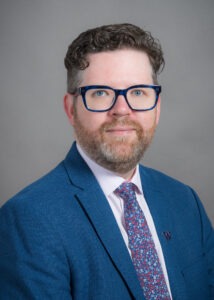PI: Patrick M Boyle, PhD
Our Lab’s mission is to develop and apply new computational frameworks that help decipher mechanisms of heart disease and explore new frontiers of clinical treatment.

PI: Patrick M Boyle, PhD
I lead the Cardiac Systems Simulation (CardSS) Lab in the Bioengineering department at the University of Washington (UW). Our lab uses computer models of the heart and other sophisticated tools to cultivate new knowledge about cardiovascular disorders. We use MRI scans from individual patients to power these complex “virtual heart” simulations. We use these powerful tools to discover underlying causes of disease or devise new treatment strategies that deliver better patient outcomes. An illustrative video based on my previous research can be viewed via this link.
The lab’s current major research thrusts include:
- Predicting future health risks in patients with fibrotic remodeling of the left atrium (stroke, atrial fibrillation, etc.)
- Optimizing treatment of rhythm disorders via personalized simulations (catheter ablation, radiation therapy, etc.)
- Conceptualizing next-generation cardiac devices that harness new tech like optogenetics, harnessing light-based stimulation
- Investigating new applications of cardiomyocyte-like cells induced from patient-derived pluripotent stem cells
- Exploiting machine learning and AI to predict adverse cardiovascular events, with a particular emphasis on explainability
Our research is currently supported by the National Institutes of Health (R01-HL158667, R21-CA277746), the American Heart Association in partnership with Additional Ventures, the UW Institute for Translational Health Sciences, the Catherine Holmes Wilkins Charitable Foundation, the Seattle Foundation.
The CardSS Lab is committed to providing a learning environment where all lab members are respected and treated with respect and dignity. Every lab member’s voice will be heard. Lab members are expected to reciprocate by treating their colleagues respectfully and fairly.

